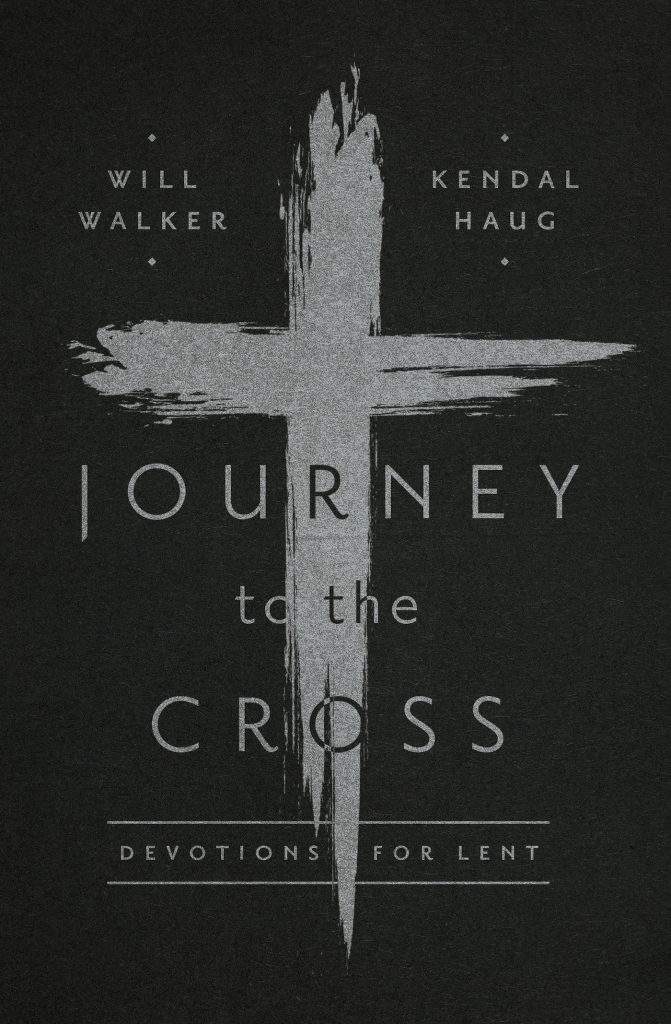Yet another said, “I will follow you, Lord, but let me first say farewell to those at my home.” Jesus said to him, “No one who puts his hand to the plow and looks back is fit for the kingdom of God.”
Luke 9:61–62 (ESV)
During Lent we give extended thought to the suffering that Jesus endured, but we know the outcome—an empty tomb. For us, this is an exercise in reflection, but for the disciples it was a testing of faith. We see what God was doing in the garden of Gethsemane, and we know the great necessity of the cross of Christ. Otherwise, we too would fall asleep and run for safety. It’s easy to look back.
Jesus saw it coming. Luke says, “When the days drew near for him to be taken up, he set his face to go to Jerusalem” (Luke 9:51). Knowing what had to happen, Jesus stayed the course. A serious reflection on his suffer- ing must account for the fact that our Lord looked forward, never back. He was honest about the implications of this reality for any who would follow him (Luke 9:62)
We look back all the time, longing for comforts past, wondering what might have been. Even though we have taken up life with Jesus, seasons of suffering challenge our resolve and fix our attention to how things used to be. Our hunger for restoration and relief from burdens turns our heart to the past, but Jesus has only an eye for what is set before him.
The Israelites experienced this in the forty years they spent wandering in the desert. They argued with Moses, idealized their life in Egypt, and questioned the goodness of the Lord. They complained about the Lord’s provision, not because he didn’t provide, but because they weren’t content with what he provided.
The paradox of suffering is that it is actually a gift—one we might like at times to give back—but a gift nonetheless. God gives us suffering as a way of giving us himself, for it is in our suffering that we become acutely aware of his presence and power. Hardship empties us of our self-reliance so that we might walk in the Spirit, who “bears witness with our spirit that we are children of God, and if children, then heirs—heirs of God and fellow heirs with Christ, provided we suffer with him in order that we may also be glorified with him” (Romans 8:16–17).
The Israelites in the wilderness and Christ on the cross both stand as a testament that God does not forsake his people. More than this, they remind us that suffering is a gift from God that tangibly embeds his promises in our daily life. Of course, we have to be looking to him to receive it as such.
Ultimately, suffering is about learning to receive whatever God has placed in our hands as his goodness for us today. For Jesus, the journey to cross was a gift. Gethsemane and Golgotha were gifts. They were not easy gifts to receive, which is why he had to say, “Not what I will, but what you will” (Mark 14:36), and why he taught us to pray, “Your kingdom come, your will be done” (Matthew 6:10), because if we are not looking for God’s kingdom come, we always be looking back for our kingdom gone.
Excerpted from Journey to the Cross © 2017 by Will Walker and Kendal Haug. May not be reproduced without prior written permission.
Tune into the Journey to the Cross podcast where the authors lead listeners through each devotional leading up to Easter.
JOURNEY TO THE CROSS: DEVOTIONS FOR LENT
Journey to the Cross moves us closer to the heart of Easter through forty days of Bible readings, prayers of confession and thanksgiving, and daily devotional readings. This forty-day devotional takes a deeper look into six central themes of the Christian life: repentance, humility, suffering, lament, sacrifice, and death.






